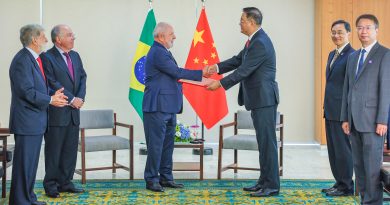Obama’s Foreign Policy Legacy: Mistakes Made, Too Early to Tell
By Thomas Ashe
Staff Writer
On September 8, Foreign Affairs held a debate between academic scholars and practitioners in the international relations field centered on the future of United States foreign policy and President Barack Obama’s legacy. From the Middle East to China, to the Iran nuclear deal and terrorism, President Obama has made decisions that have affected Americans and foreigners alike.
Professor Walter Russell Mead of Bard College argued that America needs to realize that its influence in Israel is not as strong as it may think. He claims that American presidents, including President Obama, believe that the United States has more leverage over Israel as opposed to reality. He suggested that the United States should be more realistic about what it can do, and should stop trying to take responsibility for a situation that we cannot control and have not controlled.
Regarding terrorism, Jessica Stern, a former National Security Council staff member in the Clinton administration, believes Obama’s policies do not represent a change in strategy from the previous administration. She believes his support for increased domestic surveillance and drones is derivative of a strategy that was established years prior.
One mistake Stern pointed out was President Obama’s campaign promise to close Guantanamo Bay prison, which he has yet to and probably will not deliver on.
Also discussed were China and the Iran nuclear deal, both in a positive light. Regarding China, Thomas Christensen, former Deputy Assistant Secretary of State for East Asian and Pacific Affairs in the Bush administration, was critical of the tension in U.S.-China relations. He suggested that the financial crisis of 2008 made relations with China much more unstable. This crisis gave China reason to “feel cocky abroad” and triggered its rise in power. Yet he does not fault President Obama for the power struggle with China, and continues to praise the Obama administration for attending the East Asia Summit. He concludes that it is probable that the United States and China will avoid an entirely antagonistic relationship, thanks in part to policies implemented by the Obama administration.
During the Q & A session at the end of the debate, a student asked the panel about their feelings towards the Iran nuclear deal. Foreign Affairs Editor Gideon Rose felt that it was a great achievement that represents the dynamism of American power, but that it may be overblown.
Princeton University’s Thomas Christensen stated, “The way the world is interdependent today, there are not only American ideas; you have to have multilateral coalitions to fix [these] problems.”



Obama’s Foreign Policy Legacy #diplomacy
http://t.co/xnDGEgzLKs